Intro
I want to do a thesis on the border between HCI and mental health. I found a professor nearby who was in the process of creating an app called NEST to prevent repeated suicide attempts for patients at the university clinic. During the work I did 2 usability and accessibility assessments of NEST app, lots of mixed methods research and a new design proposal called AGAVA according to the research results.
Research Methods
I researched methods that have proven effective in suicide prevention. Then I reviewed the features and content of the five most popular applications that use the same method (Better Stop Suicide, Talk Life: Depression & Anxiety, Suicide Safety Plan, Stay Alive, How is the world feeling) that were selected at the Jena University Clinic. Based on the researched were cteated portrait of the target audience.
Based on the features overview and literature studies I have made a questionary with open and Kano-type questions on the crowd-sourced Russian-speaking auditory with the help of Google Forms. As a result, I have a list of features that should or shouldn’t be in the device and application that could prevent suicide attempts. The value proposition canvas was also created.
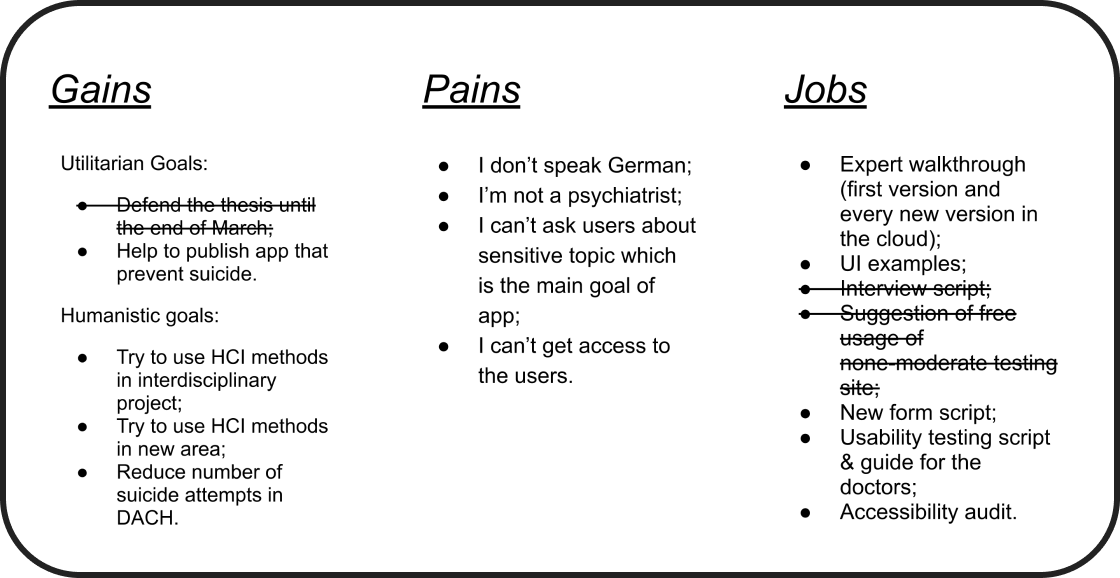
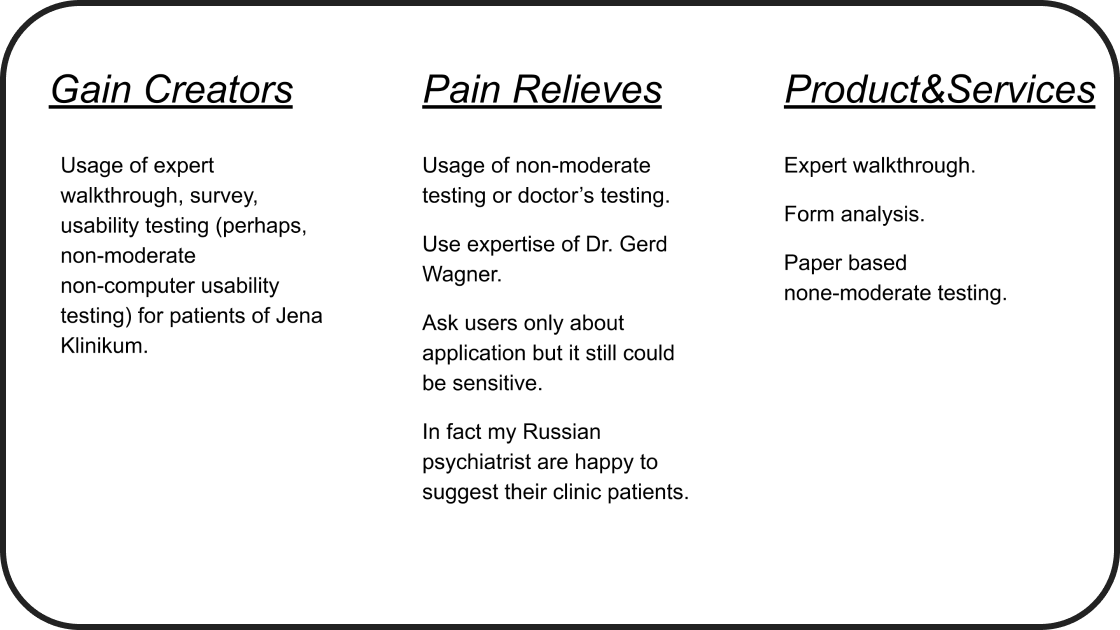
Limitations
Unfortunately, I was not able to conduct interviews and other research with patients at the university clinic, either online or offline, due to privacy laws. I was also offered to use the Fabuza platform for free for this research, but this was refused by the university clinic because the servers were in Singapore and not in the EU.
All the research was done on different geographical samples and found through the open sources (Facebook and Telegram). I can’t accept the suggestion to do research in the Russian state clinic because I want to be more flexible in the choice of methods and I don’t want to have any connection with government controlled studies.
2 x Expert Walk-through & Accessibility Assessment of NEST
Before creating something new, I wanted to prove what weaknesses the current applications have. For the first and later second version of the applications, I made an expert walkthrough based on the analysis of usability problems, WCAG 2.0 and iOS/Android platform requirements. In the first iteration 19 problems were found. The majority of high criticality problems were related to inactivity of active elements, low contrast texts and information input fields. The results were presented.
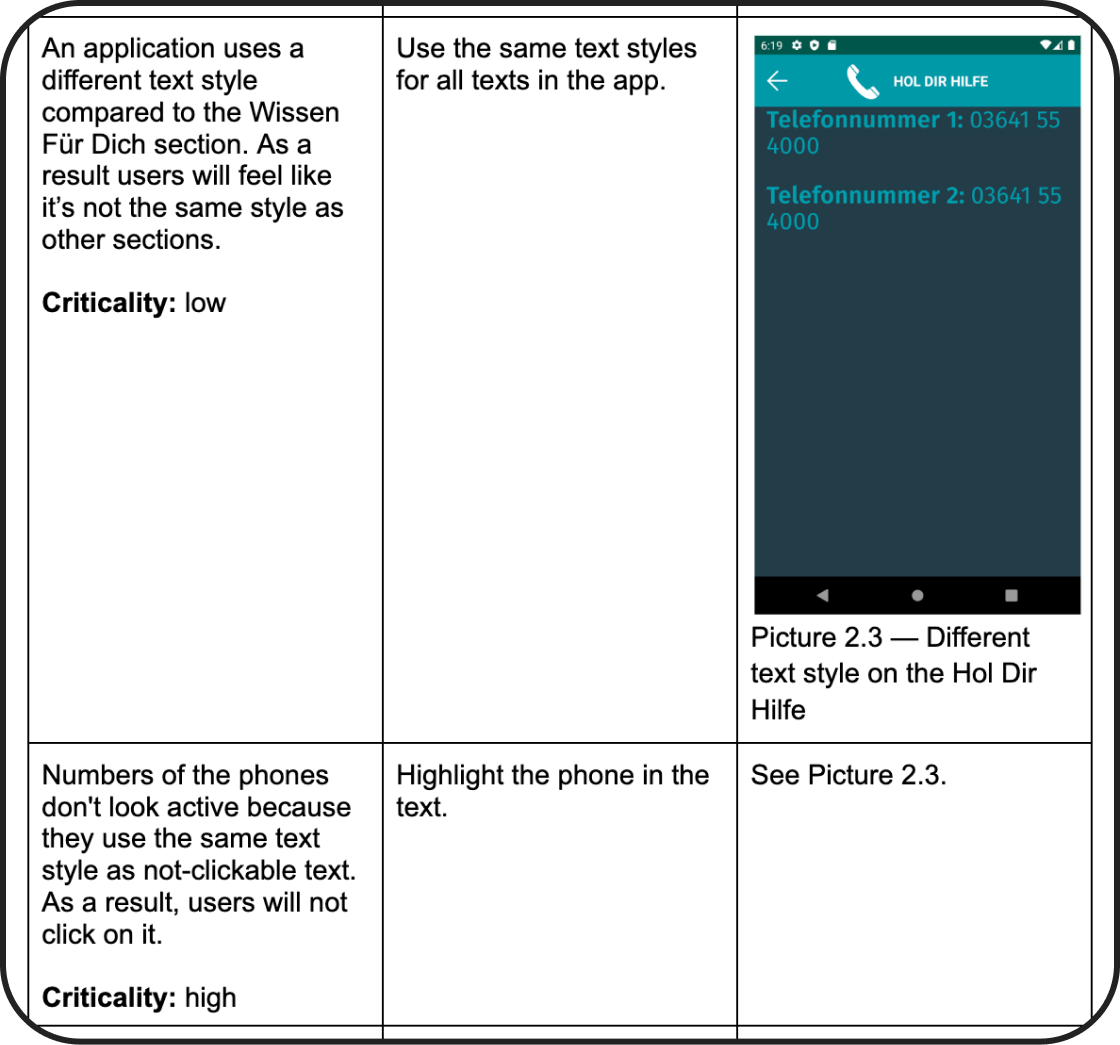
In the second iteration only 3 repetitive problems were found, related to the lack of adaptability of the interface to the needs of people with problems of color perception and vision. The results were transferred as comments in Adobe XD.
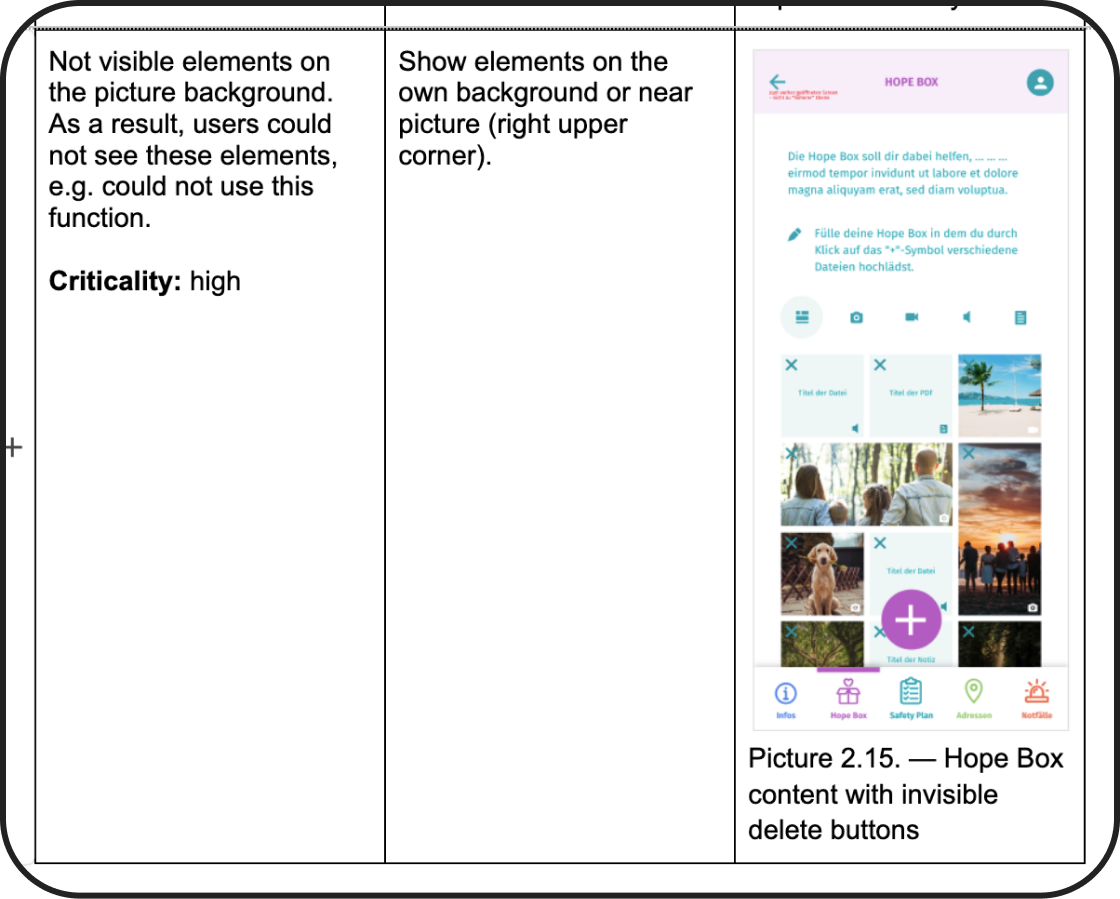
Prototyping and design of AGAVA
First, the information architecture was developed. Prototyping was done first on paper, where the structure of the pages, the use of characters, large typography and blob blocks were developed. Further, the work was divided in parallel: the creation of graphics from sketches was outsourced to Illustrator, and I concentrated directly on the creation of screens and the connection between them in Sketch. After the interactive prototype was created, it was decided to test it on potential users by creating a scenario and a protocol.
Overall, the design of the prototype made a good impression and the illustrations were appreciated by the users. Participant quote: “I like the design. The potty thing is cute and very imaginative, I like the metaphor. When you feel bad, you languish. But not annoying”.
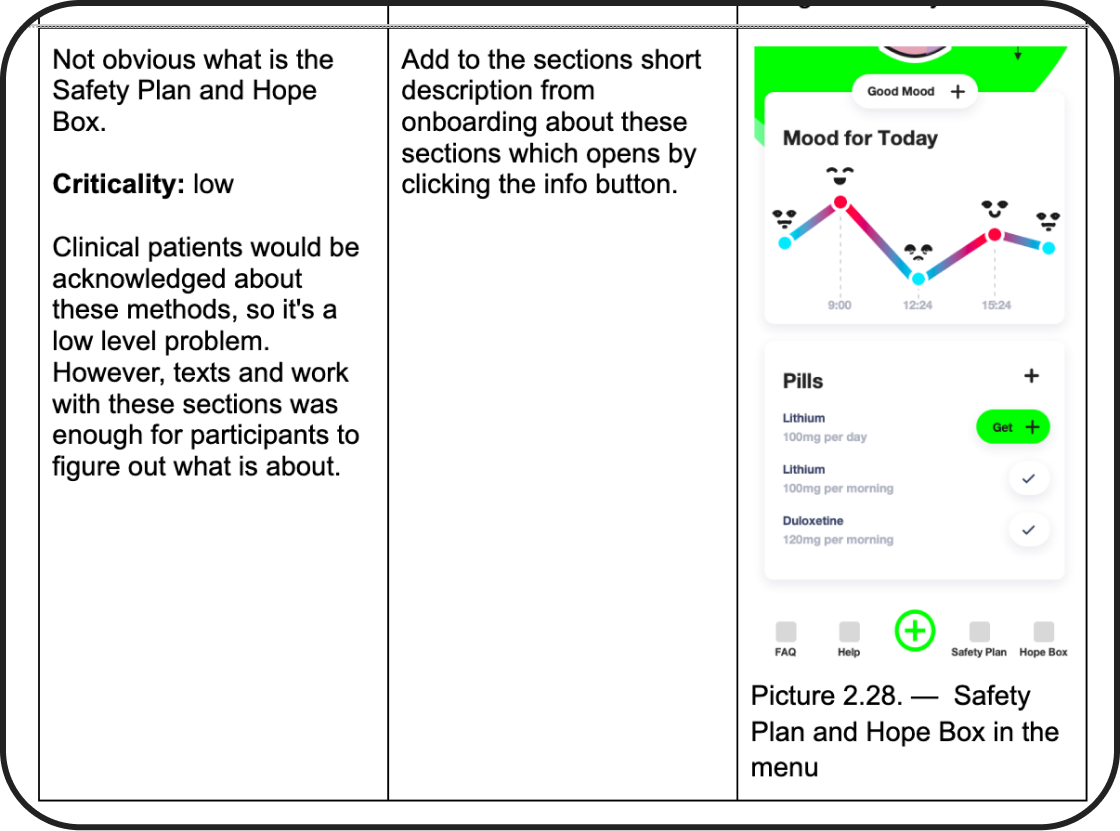
The average SUS is 86.5 (out of a maximum of 100). For our size sample, 50% of the time it could be +/-6 points, so we consider a range of 81.5-92.5.
Collaboration with Illustrator
My work always depends on other collaborators: illustrators, copywriters, developers and, of course, users. I have been happy to work with Margarita Shatalova. She draws exactly what I need in the style I mentioned. It was funny to find the same approach in the Adobe Illustrator ads a few years later.
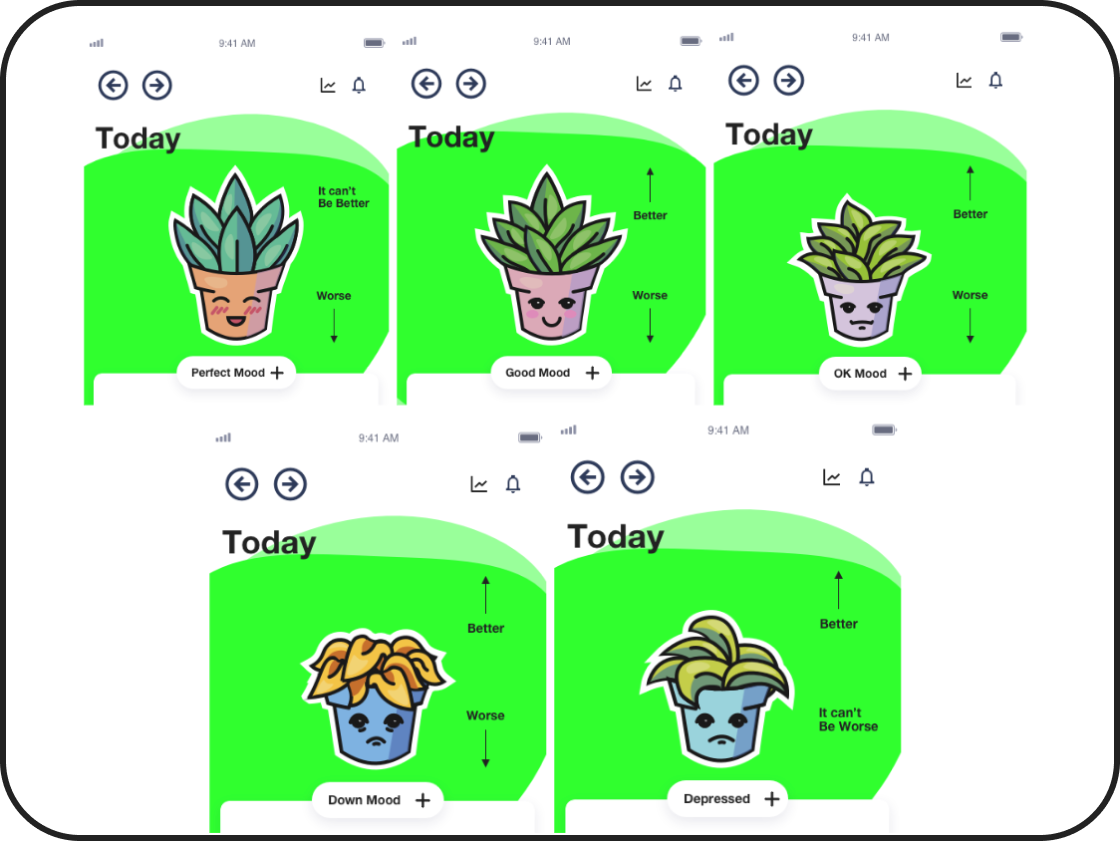
Next Steps and Documentation
After conducted usability reseach were made design changes.
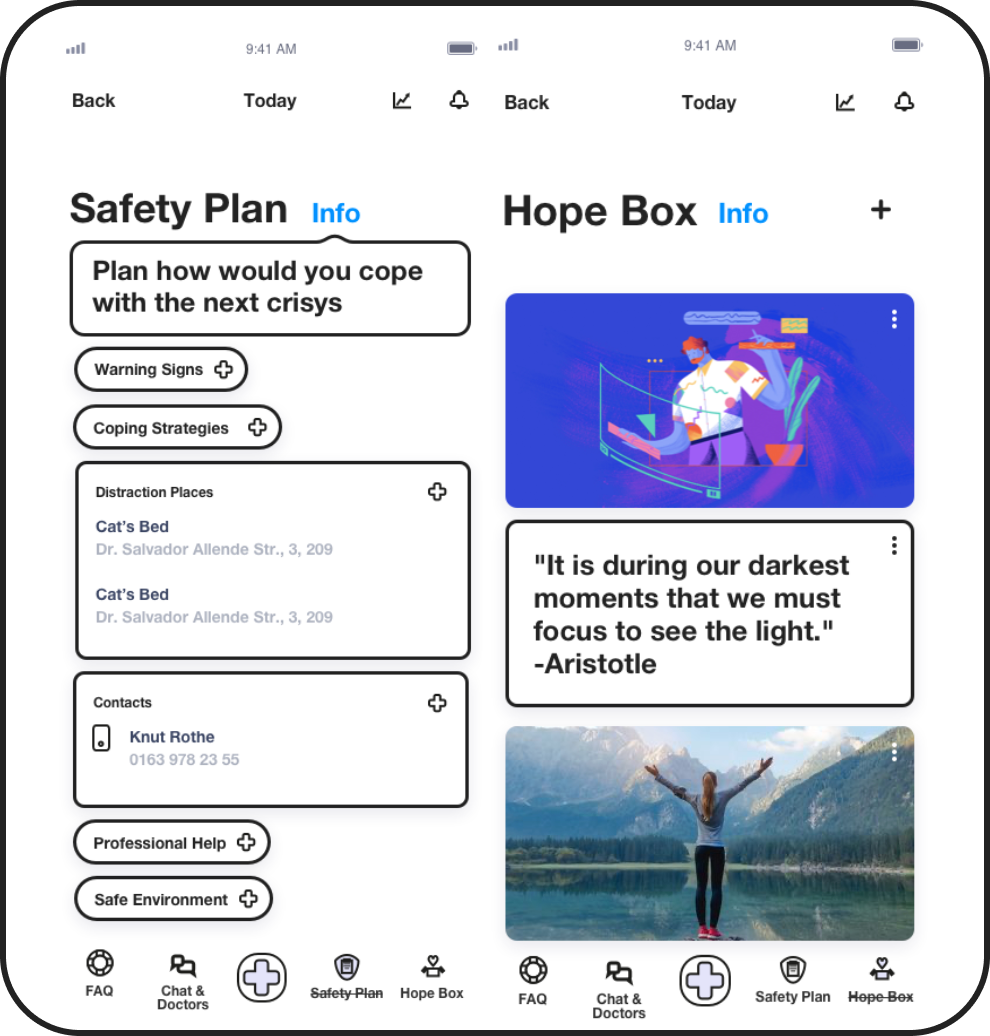
Since I was involved in SMM for several movies and in late April 2024 I was connected with a producer and director who were making a documentary about suicide prevention. I was happy to share my findings and very sad that they were never used by the clinic. I cannot force people to use proven results, even if it would be beneficial for other people.